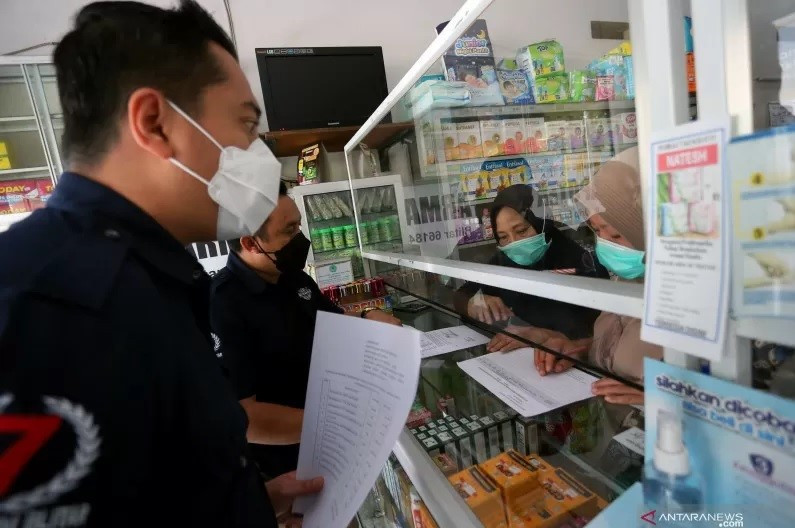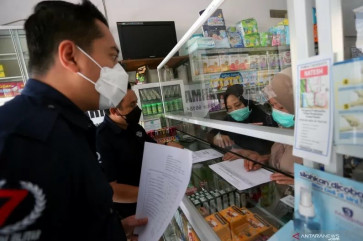Popular Reads
Top Results
Can't find what you're looking for?
View all search resultsPopular Reads
Top Results
Can't find what you're looking for?
View all search resultsIndonesia can improve access to, availability of medicine
From a regulatory perspective, considerations and exceptions should be made for policies on the procurement of goods and services related to drugs, as they can have a direct impact on the quality of human development and even lives.
Change text size
Gift Premium Articles
to Anyone
I
ndonesia has been recognized as a country with impressive vaccination coverage. The country ranks fourth in COVID-19 vaccine coverage after China, India and the United States, with about 167 million people having received their first jab and 41 million fully vaccinated.
The World Health Organization's target was achieved greatly due to the joint forces of Penta-Helix stakeholders and multilateral cooperation with various pharmaceutical companies. While many take comfort in approaching the end of the health crisis, new Omicron cases have been reported in Indonesia and by its surrounding neighbors.
The distribution of vaccines, drug availability and other medicines, both for the national health insurance (JKN) and other national health programs, are essential for Indonesia to build a robust health system in the future.
During the ongoing health crisis, the government has carefully modified its working methods and examined a number of short, medium and long-term policies in a variety of areas, including health. This step will create an adaptive and constructive future system and high-quality healthcare services.
One of these regulatory means is Presidential Regulation (Perpres) No. 12/2021, which aims to regulate procurement. As stated in the previous presidential regulation, Article 6 of Perpres No. 16/2018, six principles serve as references for various stakeholders. They are: efficient, effective, transparent, open, competitive, fair and accountable in the government's procurement process.
The 2021 Perpres is part of the government's manifesto to nurture business, as reflected in the principle of the Job Creation Law. One of the most significant changes the 2021 Perpres introduces is the removal of the tender and negotiation processes and their replacement with a "verification" process, which refers only to technical requirements set forth by the Health Ministry. This expedites the tender process for government institutions acquiring products and services.
Other significant changes include the authority for each government work unit — in this case, health facilities and services (hospitals and community health centers) with the status of public service agency, health office and institutions in the central government — to conduct direct e-commerce negotiations with drug providers in the e-catalog. Many of the changes mentioned above will, of course, have a number of consequences, which will impact public access and the availability of quality healthcare in general.



















